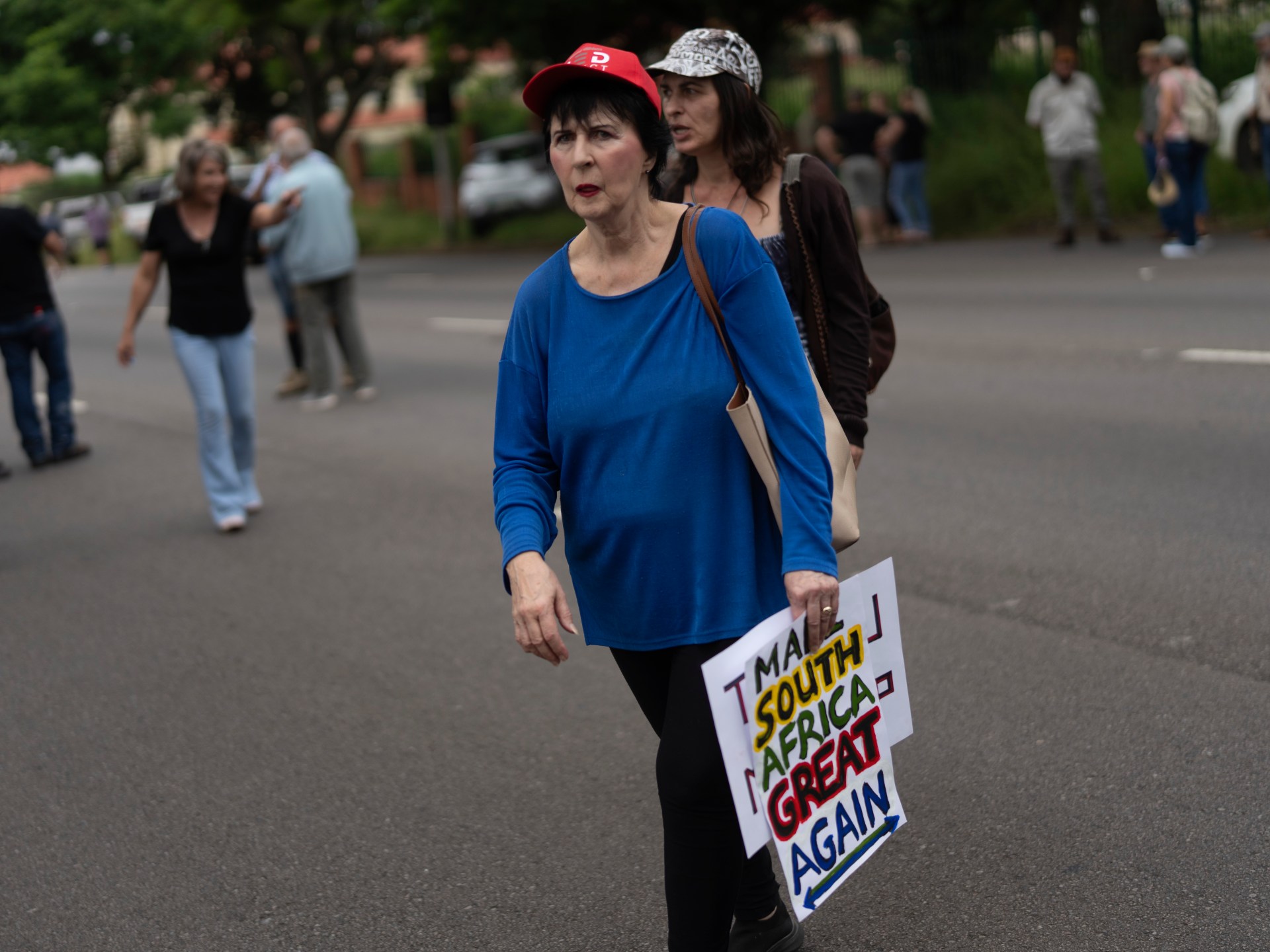Africa
‘I am quite privileged,’ say white Afrikaners not wanting asylum in the US

A Rally for International Intervention
In Pretoria, South Africa, a rainy Saturday set the scene for a rally where several hundred white Afrikaners gathered outside the U.S. embassy. The event centered around a plea for help from President Trump and Elon Musk, with banners urging action against the perceived threat of the ANC takeover. Trump’s recent executive order offering asylum to white Afrikaners and cutting aid to South Africa was a key focus, sparked by the country’s Expropriation Act and genocide claims against Israel. This act allows land expropriation for public interest, a move seen as contentious by some.
The Legacy of Apartheid and Its Impact Today
Apartheid, formally ended in 1994, left a lingering legacy of inequality. Historically, white Afrikaners, descendants of Dutch settlers, implemented apartheid, seizing land and resources from the black majority. Today, 73% of private land remains white-owned, despite whites comprising only 7% of the population. Economic disparities persist, with whites dominating corporate leadership. The Expropriation Act aims to address these inequalities, but has been met with resistance, fueling claims of discrimination against Afrikaners.
The Role of AfriForum in Shaping a Narrative
AfriForum, a once-fringe group, has gained prominence lobbying in the U.S. against perceived threats to Afrikaners. They argue that land seizures and farm murders target whites, claims experts refute. AfriForum’s efforts gained traction with Trump, who tweeted concerns in 2018. The group’s narrative of persecution, amplified by media, has influenced international discourse, despite statistics showing farm murders constitute less than 1% of total murders, often criminally motivated.
Divided Opinions Among South Africans
Reactions to Trump’s asylum offer are mixed. While some Afrikaners express empathy for farmers facing crime, many acknowledge their privilege. Students at the University of Pretoria voice skepticism, with some criticizing race-based policies but recognizing South Africa’s progressive constitution. Few consider emigrating, reflecting a broader contentment among white South Africans who enjoy significant advantages.
The Strategy of Fear and Its Consequences
AfriForum’s tactics exploit fear, particularly around land expropriation, enhancing their influence. Experts argue that such strategies exacerbate societal tensions rather than resolve issues. The narrative of white persecution contrasts with the reality of persistent inequality faced by black South Africans, highlighting the need for cohesive solutions over divisive rhetoric.
Global Implications and Diplomatic Tensions
Trump’s actions have strained U.S.-South Africa relations, impacting aid crucial for programs like HIV/AIDS treatment. South Africa remains committed to its stance on Palestine and the Expropriation Act, refusing to be swayed by external pressure. The situation underscores the complex interplay of domestic policies and international relations, with South Africa asserting its sovereignty amid global dynamics.











